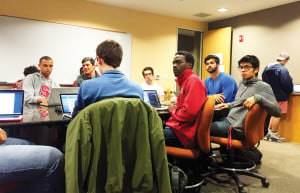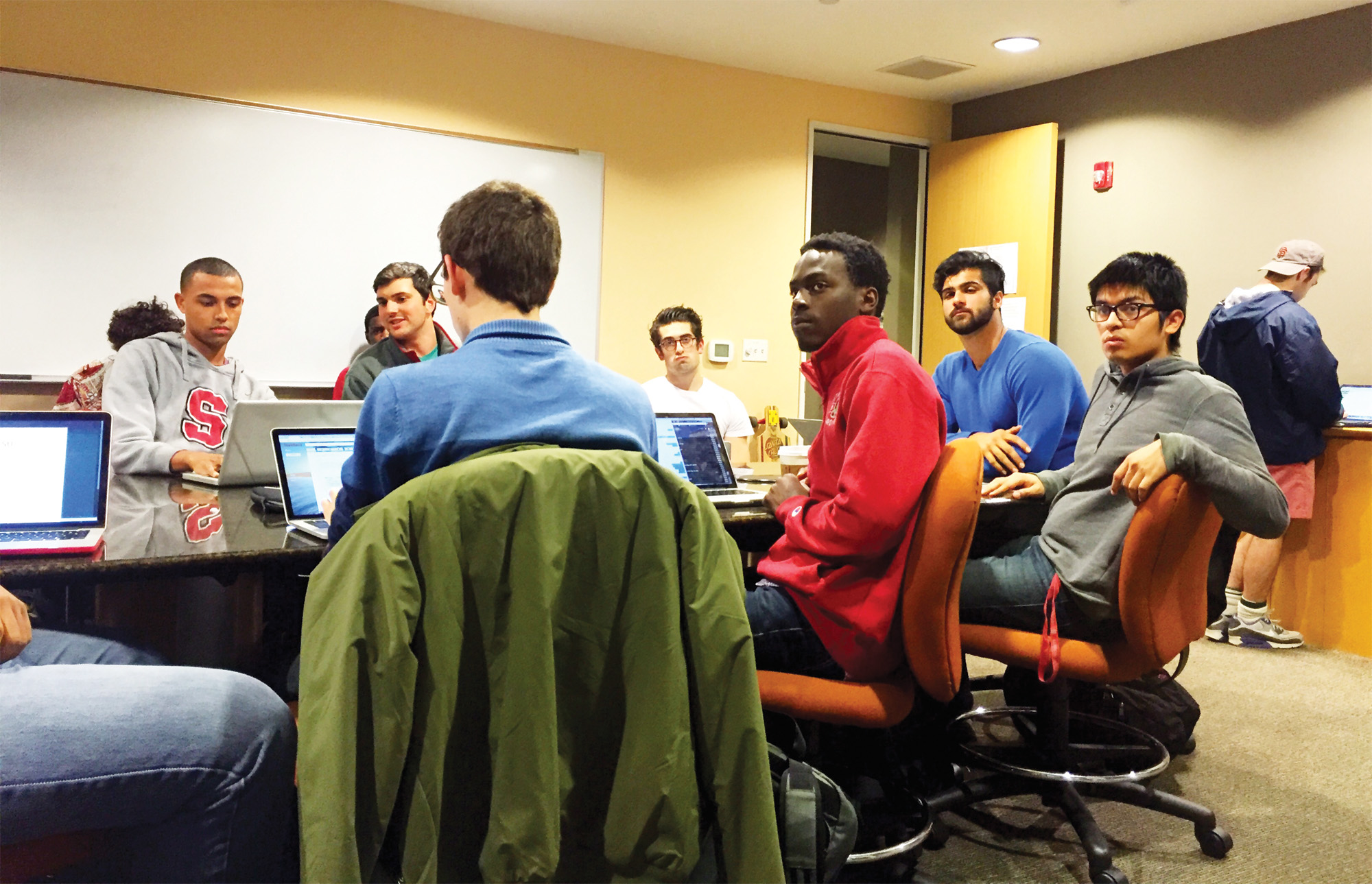On Tuesday night, the 23rd meeting of the 17th Undergraduate Senate invited the chief of the Stanford Police Department to give a guest talk on the role of officers on campus and discussed funding.
In response to student interest about various campus safety issues, Stanford Police Department Chief Laura Wilson ’91 engaged the Senate in a discussion about the operation of the police force on campus. Stanford officers fall under the jurisdiction of Santa Clara County, but are paid by the University and chiefly only serve on campus. There are 75 full-time employees with about half being sworn-in, gun-carrying officers. In addition to enforcing the law and writing tickets, officers also work in community outreach.
“My emphasis has been community outreach through our police liaison program and really trying to interact with not only staff and faculty, but students to break down barriers and stereotypes people have about the police,” Wilson said. “We try to make people feel comfortable talking to us.”

When it comes to the department’s alcohol policy, officers can use their discretion to enforce the law. Because of limited personnel, Stanford police usually focuses on the more egregious cases of alcohol violation.
“We probably arrest more non-Stanford students for possession because students pretty much know they’re not supposed to walk outside with alcohol,” Wilson said. “We also wouldn’t necessarily walk into the dorms. We’re legally allowed to, but we’ve sort of taken the approach that it is your home and your residence.”
Recent rise in news reports of active shootings have also led to more demands for active-shooting response workshops from the police department. But Stanford does not seem to have any greater chances of experiencing shootings, according to Wilson.
“I don’t think that we’re any more at risk than any other open population,” Wilson said.
Ongoing action for senate proposals
Last week, ASSU President John-Lancaster Finley ’16 and ASSU Vice President Brandon Hill ’16 presented to the Faculty Senate the three proposals for amending the Engaging Diversity (ED) Ways of Thinking/Ways of Doing (WAYs) requirement, creating a sexual education program in residences and reaffirming support for the native community. Faculty was receptive to these proposals and President John Hennessy intends to form a committee to discuss the resolution to rename Serra buildings and propose a standard criteria for future recommendations.
Funding Bills
The Black Liberation Month Committee requested $6,000 for hosting activist poet speaker Nikki Giovanni to have a discussion with Harry Elam on resilience and liberation through the arts. The request was approved.
The Stanford Daily finance representatives attended the meeting to request that The Daily be added to the ballot for annual grants to exclusively cover printing costs. Because of internal miscommunications when the previous Chief Operating Officer left the position, a budget was not submitted for timely approval. After assuring the Senate that future measures to prevent miscommunication have been implemented, the motion for being added to the Annual Grants ballot passed.
Contact Ariel Liu at aliu15 ‘at’ stanford.edu.
